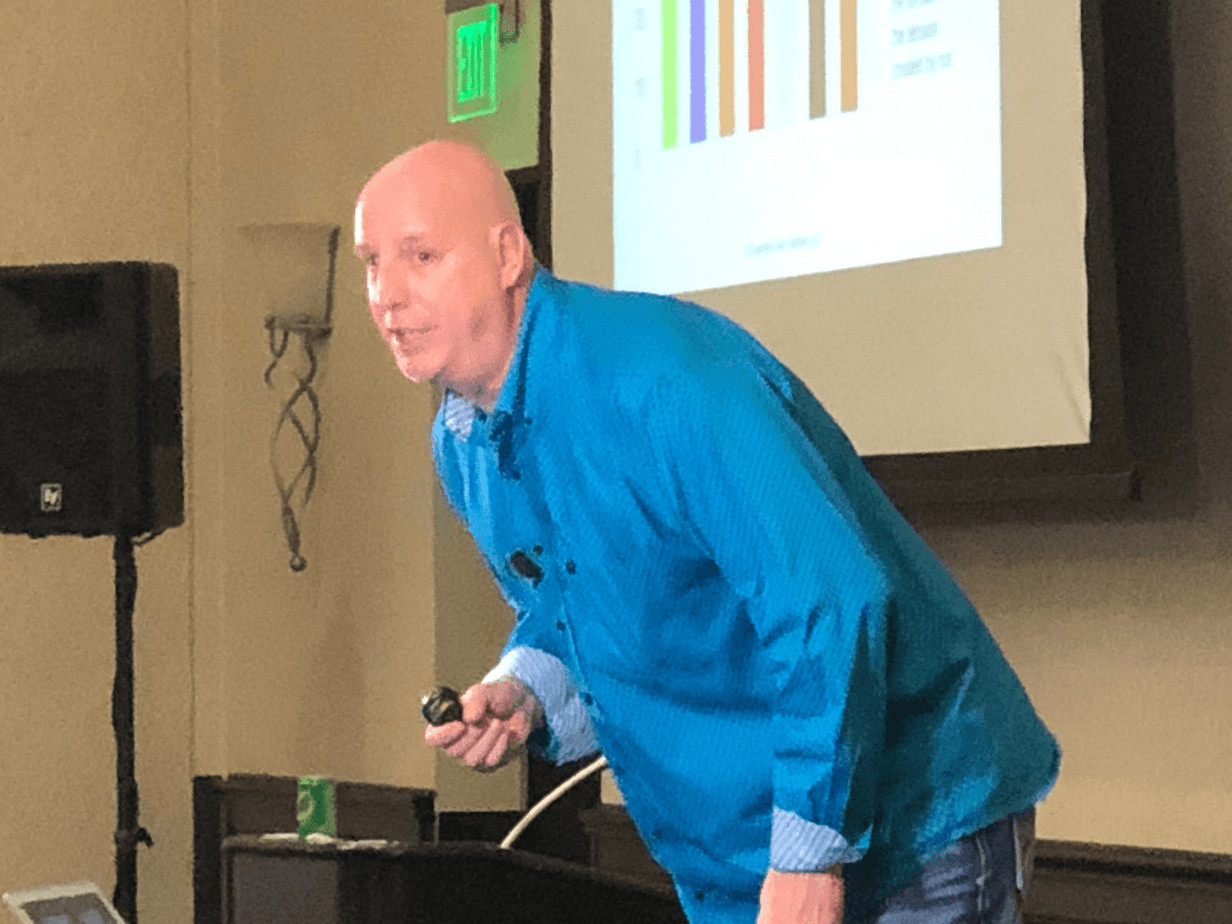
They call him the "DISC Whisperer" for a reason. Steve Sisler is like an FBI profiler, but for businesses, and he proved it at the Leadership+Talent Development Summit (LTDS) in San Diego.
"You can know so much about a person when you build a reservoir of how people think, and the emotions going on in a person’s life," Sisler told attendees. Managers should keep this statement in mind when addressing their direct reports and even their contemporaries. Building an arsenal of emotional tools to communicate better with everyone at work can be a manager's best investment.
Emotional Energy
Sisler reminded the crowd that "emotional energy is your primary instinct that determines your actions." Think about that the next time someone on your team acts out of character. Take into consideration what might be going on in their lives behind the scenes of work.
"What you want to do is not what you always end up doing," Sisler went on. "The energy in those behaviors was your action. Those emotions are in charge. Good or bad? Neither." Just be aware. A manager's awareness of what causes certain actions can improve employee interaction and therefore, build better-functioning teams.
Sisler gave an example from one of his business coaching clients. "This happens all the time: A manager comes to me and says, 'we have a problem with Sally'." He will look over Sally's adapted and natural work styles to see how she shows up to her team. "Then I'll say, 'her adapted and natural looks the same. Well, you're not managing her. There are no external influences changing her energy. So, are you or are you not managing Sally'?" Then the manager will say: "No I'm not." I have to ask: "Then why is Sally the problem?"
Being Self-Aware
Clearly, his point is that a manager has to be self-aware, besides being aware of the emotions at play with employees. So don't forget to look inward as well as outward when addressing or confronting a direct report in a one-on-one. It's not easy. And it's uncomfortable. But great managers make the extra effort. Knowing one's own faults only leads to growth.
Sisler recounted a time when a manager had to deal with her own issues instead of passing the buck onto her employee. He got a phone call that went something like this: "Steve, we have to profile Heather."
"Ok what’s wrong with Heather?"
"She's weird." (Sisler laughs and the audience laughs) "She called off at the last minute because she has a sunburn. She does this type of thing a lot."
"What did you say when she called in?"
"I told her I hope she feels better." (More laughs, some groans)
"What do you hate?" Sisler asked the manager.
"Confrontation."
"What do you need to do?"
"Confront her."
"Her brain is wired to avoid conflict," Sisler concluded. "She needs to make an adaptation but doesn’t have the energy to do it because her anger emotion is so high."
Work Better with Others
Lesson learned: Don't be like this manager. Confront your fear of confrontation to be a better leader.
Sisler introduced The Four Behavioral Orientations. "Our intentions are couched in four orientations of conscious intended behavior." In essence, people come from a place of motivation from one of these four orientations:
- Taking
- Attracting
- Responding
- Preserving
"It's good to know where their energy is, to predict emotion and behavior," Sisler said. Consider these orientations when dealing with an office issue. Each one is connected to a dominant emotion that an employee might be feeling. Taking is connected to anger; attracting to optimism; responding to patience; and preserving to fear. Be empathetic to these orientations when working something out with a direct report, or among team members.
"Teams working well is due to empathy," Sisler said. "The empathetic element is king. Or queen," he added with a smile.
He ended with this final thought for leaders: "Conflict is going to happen. It's how you negotiate it that matters."
Steve Sisler is one of the designers of SalesFuel's HIRE product.
